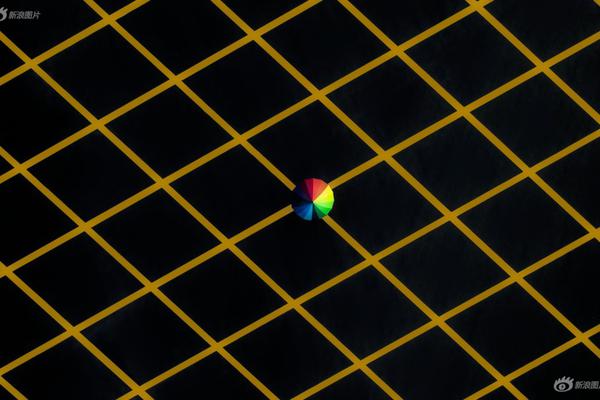Your Juul may not kill you,Friend Wife but it's definitely not doing the planet any favors.
Like many other delightfully small gadgets, the world's hottest vape is miserable to dispose of without wasting parts or putting people in harm's way. Juul devices pack a lot into a small package, including a lithium-ion battery, which could explode if mishandled.
Though Juul Labs, the company behind the vaporizer, is on track to dominate a multi-billion dollar e-cig market this year, it's made no clear effort to educate its customers about how to dispose of the Juul safely, nor has it established a trade-in program that would allow people to responsibly send their gadgets back when they're no longer desired.
SEE ALSO: E-waste recycling guide: How to get rid of computer parts, old phonesJuul Labs has positioned itself as responsible company, with a product that could make the world a better place. Yes, it sells delicious nicotine pods that teenagers crave, but it also has a mission statement: "We envision a world where fewer people use cigarettes, and where people who smoke cigarettes have the tools to reduce or eliminate their consumption entirely, should they so desire." Without clear guidance on how to dispose of its devices, Juul Labs may only make the world worse, as wasteful electronic gadgets pile up and resources to create new ones become scarcer.
Juul's devices are tiny and tricky to pull apart, like so many other gadgets. (Apple's teensy AirPods have been called "impossible" to recycle.) And so the onus is on Juul Labs to reclaim them, especially as the devices become more popular. It's made no effort to do so.
A lot of people are buying these. Even last fall, when Juul's market share hovered around 32 percent, the company told CNBC it produced 20 million products every month. (That includes the device's "pods," which contain the nicotine-filled liquid the unit vaporizes for your inhaling pleasure.) Now, Juul reportedly accounts for 54 percent of the e-cig market.
The volume of production is reason for concern, according to Jim Puckett, executive director of the Basel Action Network, a nonprofit concerned with protecting people and the environment from e-waste. Small problems add up. Eventually, people will need to dispose of their Juuls, and they currently have few good ways to do so responsibly. No battery lasts forever, and the company doesn't officially sell lithium-ion replacements or repair parts.
"Lithium-ion batteries will lose their capacity at some point," Puckett said. "And when it dies, people will likely throw it in the trash, absent an aggressive program to prevent that."
Juul has no such program. The company's website doesn't include any clear information about recycling, though it notes that its pods should not be refilled or reused.
Reached by Mashable, Victoria Davis, a spokesperson for the company, said:
We design our device to be reliable and strive to exceed our 1-year Limited Warranty period -- this is nota disposableitem like many other e-cigarettes. For disposal purposes, JUUL should be treated as any other consumer electronic device, such as a cell phone. We suggest following your city's local recommendations fordisposingof a lithium-polymer rechargeable battery.
Following "local recommendations" may be easier said than done. Many states have no specific battery recycling requirements. The same goes for cities.
Worse, not every recycling program behaves responsibly. As the Basel Action Network found in a 2016 investigation, U.S. recyclers will sometimes export e-waste to other countries.
It's a simple cost-benefit game: Recycling is a business, but it's not always one that pays off. Some devices contain few valuable parts. Others are labor-intensive to break apart. Slim smartphones, for example, are often shredded into pieces, from which some valuable metals are gathered and smelted. The process is as destructive and wasteful as it sounds.
You can see the Juul's component parts on the company's "Juul Labs" website. (Or could, anyway: Perhaps coincidentally, juullabs.com began to redirect to juul.com after Mashable reached out with questions about the page on Tuesday evening.)
 Original image has been replaced. Credit: Mashable
Original image has been replaced. Credit: Mashable There's quite a lot packed into a small and sleek package, which is probably why the company and its vapes have been compared to Apple and the iPhone. But there isn't a lot of value in the Juul's components — the device retails for $34.99 — so recycling companies won't get a lot out of breaking them apart and reclaiming the parts.
"Recyclers are not going to be too keen to take them because a) they are filthy, and b) they are not going to be worth much in commodity value," Puckett explained.
Kyle Wiens, the head of iFixit, echoed these concerns when approached about the Juul's lifespan.
"They need to be manually disassembled and separated," Wiens said. "I don’t see a major problem with the design from that perspective, except that they’re so small and lightweight that the economics wouldn’t work out great."
In other words, a small device with few valuable parts leaves little upside for recycling programs. No one is going to break a Juul apart to recover its parts.
And again: If these gadgets aren't handled properly, their batteries could combust. Take a look at this video published by the nonprofit Ecomaine, reportedly showing the result of a lithium-ion battery fire at a recycling facility in Maine:
But this isn't all about explosions, either. Electronic devices like the Juul — or iPhone, for that matter — rely to some extent on elements that are not in limitless supply on this planet. For example, lithium-ion batteries require cobalt, which is sourced from very few places, often at great human cost.
In this regard, Juul Labs may have less of a cross to bear than, say, Apple or Samsung. The battery in a Juul vaporizer is certainly smaller than the one in your smartphone, and it doesn't have a tantalum-packed processor nor speakers or a hard drive. You can also imagine that there are fewer potential vape-huffers in the world than there are potential smartphone users. (Though, for what it's worth, 1.1 billion people still smoke worldwide — a pretty hefty demographic!)
But that's all beside the point. Tech companies like Juul Labs, which nail some key innovation and then go on to rule industries where once there was stiff competition, should bear a proportionate responsibility to limit the harm they inflict on the planet. This is why Apple crows about its renewable energy innovations and iPhone-dismantling robots, though it still has quite a ways to go before it can be taken seriously as a "green" company.
Juuls are a big business. While the original device still sells like hotcakes, you can imagine the company — following perhaps every successful consumer tech firm to ever exist — is planning ways to eke more cash out of is existing customers. Juul Pods, as a literally addictive substance, are no doubt great for revenue. The inevitable Juul 2 or Juul XL will be, too.
And so, just as it's committed $30 million to research and education about underage use, the company could set a meaningful agenda about e-waste. It's a problem that will persist for Juul Labs and its contemporaries. But it could be mitigated by consumer education and a trade-in program similar to Apple's "GiveBack" initiative, which gives people credit in exchange for their old devices.
It's not perfect, but it's a start.
 Watching plants grow is the best part of the slow web
Watching plants grow is the best part of the slow web
 The 'iconic line' meme recognizes the best lines in TV and movies
The 'iconic line' meme recognizes the best lines in TV and movies
 Google Pixel event livestream: How and when to watch live
Google Pixel event livestream: How and when to watch live
 Episode 4: The Wave of the Future
Episode 4: The Wave of the Future
 'Quordle' today: See each 'Quordle' answer and hints for October 5
'Quordle' today: See each 'Quordle' answer and hints for October 5
 Chrissy Teigen gets a hamster, takes all of Twitter along for the ride
Chrissy Teigen gets a hamster, takes all of Twitter along for the ride
 Forbes gets roasted for naming Kylie Jenner its youngest 'self
Forbes gets roasted for naming Kylie Jenner its youngest 'self
 'The Last of Us' Season 2, episode 4: Why Ellie sings 'Take on Me'
'The Last of Us' Season 2, episode 4: Why Ellie sings 'Take on Me'
 A video ranking Fritos, Doritos, Cheetos, and Lay's chips is dividing the internet
A video ranking Fritos, Doritos, Cheetos, and Lay's chips is dividing the internet
 Character AI reveals AvatarFX, a new AI video generator
Character AI reveals AvatarFX, a new AI video generator
 Google Pixel event livestream: How and when to watch live
Google Pixel event livestream: How and when to watch live
 Watch these adorable dogs absolutely crush the cheese challenge
Watch these adorable dogs absolutely crush the cheese challenge
 'Plan With Me' videos will inspire you to get your life together
'Plan With Me' videos will inspire you to get your life together
 How to avoid smishing attacks
How to avoid smishing attacks
 At long last, Welding Twitter gets its moment in the sun
At long last, Welding Twitter gets its moment in the sun
 Nobel Prize awarded to scientist at the fore of investigating human evolution
Nobel Prize awarded to scientist at the fore of investigating human evolution
 Parisians ask the city to erect a gate to keep out Instagrammers
Parisians ask the city to erect a gate to keep out Instagrammers
Happy Birthday, Sara Teasdale by Sadie SteinSenior Poetry by Nathan DeuelEmma Cline’s “Marion” by Lorin SteinCatflexing: The Catlover’s Guide to Weight Training Aerobics and Stretching by Sadie SteinThe California Room by Jessie KissingerWhat We’re Loving: Roman Britain, Soccer, Karaoke by The Paris ReviewNew Joseph Heller Story, and Other News by Sadie SteinChocolate, Jerks, and Other News by Sadie SteinThe Edible Woman by Sadie SteinHappy Birthday, Sara Teasdale by Sadie SteinThe Eyes Have It: A Visit with Lisa Hanawalt by Yevgeniya TrapsIn the Ninth by Mark ChiusanoWhat Reader Species Are You?The Liminal Space by Sam StephensonDon't You Forget About Me by Jason DiamondUnbroken Crayon by Alia AkkamChocolate, Jerks, and Other News by Sadie SteinHappy Birthday, Raymond Chandler by Sadie SteinToo Hot, Too Greedy by Sadie SteinWhat We’re Loving: Pulp Fiction, Struggles, Kuwait by The Paris Review The Locker Room: An Abercrombie Dispatch by Asha Schechter Reading the Room: An Interview with Paul Yamazaki by Seminary Co An Excerpt from our Art of Poetry Interview with Louise Glück by Henri Cole How to Rizz (for the Lonely Weeb): Derpycon by Liby Hays Beginning with Color: An Interview with Etel Adnan by Laure Adler The Frenchwoman from Indianapolis by Rosa Lyster Announcing Our Spring Issue by Emily Stokes At the Britney Spears House Museum by Emmeline Clein Real Play by Devon Brody Toyota Yaris by Sarah Miller Two Strip Clubs, Paris and New Hampshire by Lisa Carver In the Spin Room: At the Republican Debate by Antonia Hitchens A Fall Dispatch from the Review’s Poetry Editor by Srikanth Reddy Syllabus: Unexpected Dramaturgy by Lynn Nottage 25 Years Later: A Brief Analysis of GPU Processing Efficiency The Future of Ghosts by Jeanette Winterson Angels by Cynthia Zarin Apartment Four by Jacqueline Feldman A Dollhouse Fall Books: Zadie Smith, Moyra Davey, and Maya Binyam Recommend by The Paris Review
1.5709s , 10156.4921875 kb
Copyright © 2025 Powered by 【Friend Wife】,Exquisite Information Network